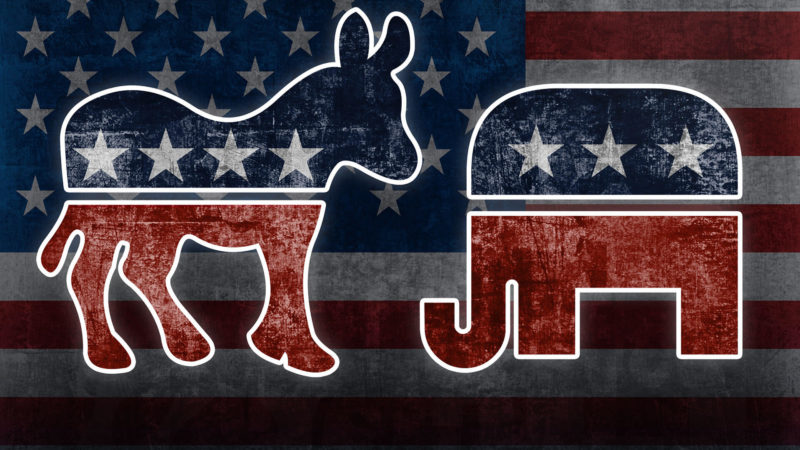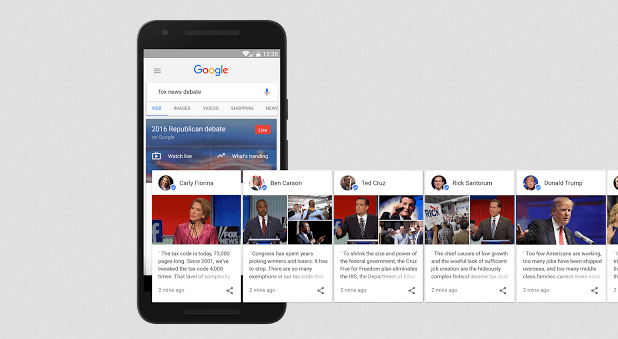Google Introduces Candidate Cards In Search For Presidential Election Season
Google is giving Republican and Democratic candidates a privileged place in search in 2016. The company has launched what it says is an experimental feature we’ve dubbed Google Posts that will create a prominent placement for the candidates’ own messages and content in a horizontal carousel in search results. This is not an ad unit. […]

Google is giving Republican and Democratic candidates a privileged place in search in 2016. The company has launched what it says is an experimental feature we’ve dubbed Google Posts that will create a prominent placement for the candidates’ own messages and content in a horizontal carousel in search results.
This is not an ad unit. The structured results will appear basically in the way that Twitter posts currently appear for candidate-related queries. However, the module is more flexible:
- Candidates will be able to publish text with lengths up to 14,400 characters.
- Candidates will be able to add up to 10 images or videos per post.
Google said in a blog post about the upcoming Republican debate that “political search interest spikes 440 percent on average during live televised debates as people turn to the web to learn more about the candidates and their platforms.” The new candidate cards will allow candidates to speak directly to voters and control some of the content in search about them.
As indicated, candidates will be able to incorporate text, images and video to communicate their positions directly to voters. The feature will first be available for the forthcoming televised Republican debate on January 28 and thereafter through the election in November.
The image above is a Google mockup of how these candidate cards will look on mobile (for queries about the Republican debate). There’s no corresponding desktop image, but these cards will also appear in PC search results.
Google indicated it will show the new cards when its ranking algorithms figure out whether a searcher wants to hear directly from or about a candidate. The methodology is similar to how and when Google determines whether to show Knowledge Graph results.
Google will allow current Democratic and Republican presidential candidates to supply content and use the module. Google also indicated that these cards will not displace Twitter in search results.
Currently, there appears to be no plan to expand this feature beyond politics to commerce or other content areas.
Postscript: Google offered a couple of clarifications and corrections to what I had posted above. While the Republican debate-related cards will appear at the top of search results that will not always be true of the candidate card experience generally. Post-debate, Google will rank candidate cards based on its algorithm. Accordingly, the cards could show up in several locations on the page depending on signals.
Google also clarified that third-party candidates can be included in this experience. However they would need to contact Google and be verified.
Contributing authors are invited to create content for Search Engine Land and are chosen for their expertise and contribution to the search community. Our contributors work under the oversight of the editorial staff and contributions are checked for quality and relevance to our readers. The opinions they express are their own.
Related stories
New on Search Engine Land
